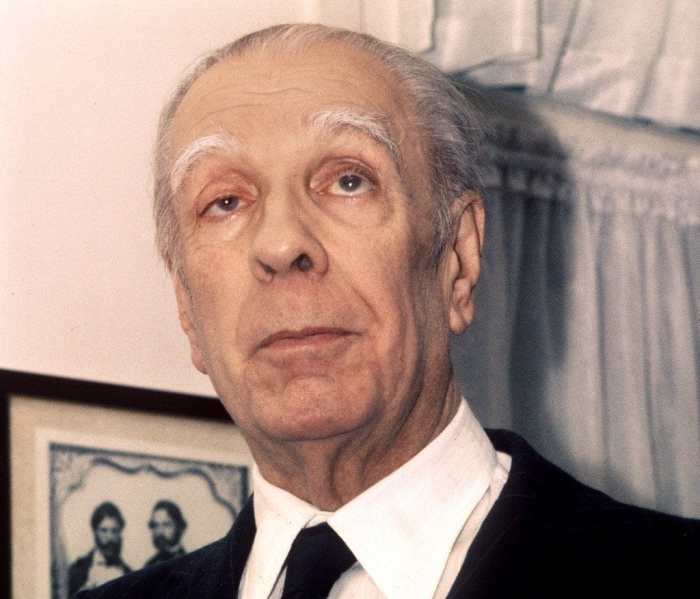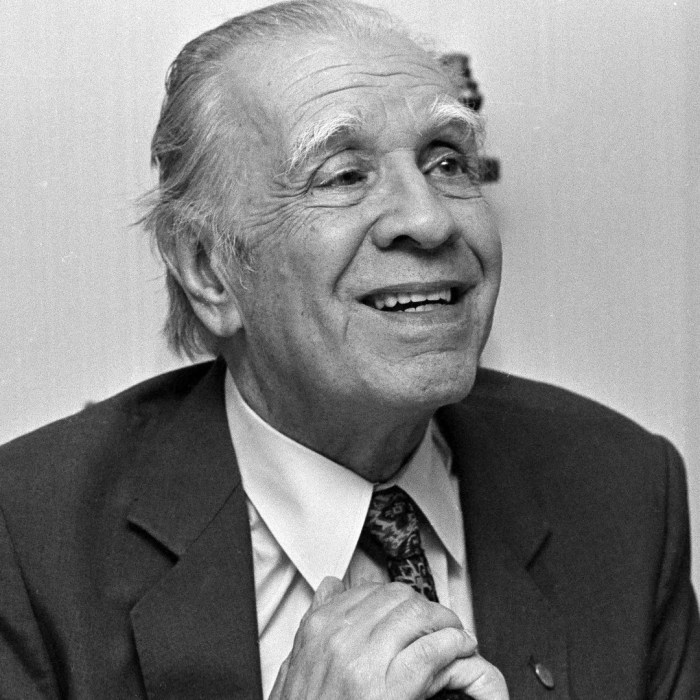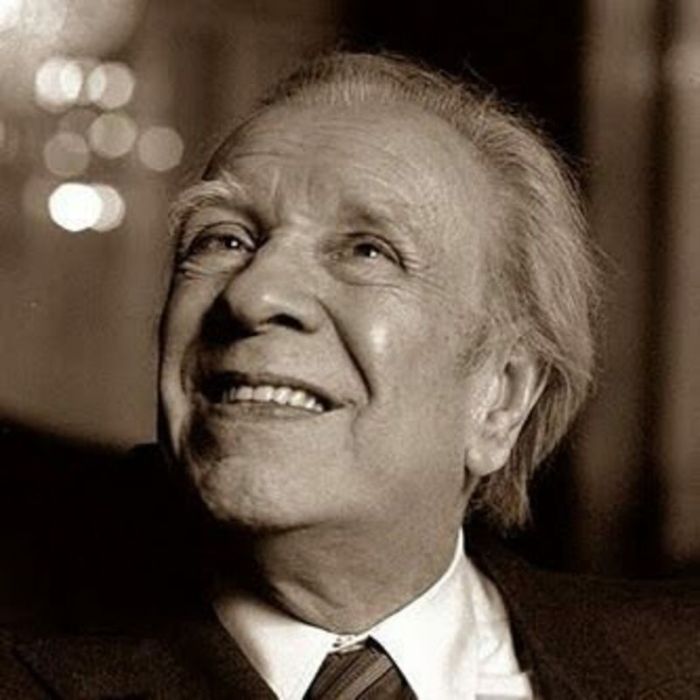El etnógrafo jorge luis borges – As Jorge Luis Borges, the renowned Argentine writer, takes center stage as an ethnographer, this exploration invites readers into a realm where literature and anthropology intertwine, offering a unique perspective on the human condition.
Borges’s writings, marked by their labyrinthine narratives and philosophical musings, provide a lens through which he observed and interpreted cultures, both near and far. His approach to ethnography was as unconventional as his literary style, challenging conventional notions of observation and understanding.
Jorge Luis Borges’s Contributions to Ethnography

Jorge Luis Borges, renowned for his literary prowess, also made significant contributions to the field of ethnography. His unique perspective, unconventional methods, and insightful works have left an indelible mark on the discipline.
Borges’s ethnographic approach was characterized by a profound understanding of the cultural context and a focus on the individual experience. He believed that ethnography should not merely describe cultures but should also interpret and illuminate them, delving into the subjective realities and perspectives of the people being studied.
Borges’s Ethnographic Methods
Borges’s ethnographic methods were as unconventional as his perspective. He employed a combination of literary techniques, such as fiction, poetry, and essays, to explore cultural phenomena. By weaving together personal observations, historical accounts, and imaginative narratives, he aimed to capture the essence of cultures and convey their complexities.
El etnógrafo Jorge Luis Borges fue un gran escritor y un agudo observador de la cultura humana. Sus escritos sobre temas tan diversos como la mitología, la literatura y la filosofía son una lectura obligada para cualquiera que quiera comprender la condición humana.
En su ensayo “Donna O’Meara, la dama del volcán” ( donna o’meara the volcano lady ), Borges explora la fascinante vida de una mujer que dedicó su vida a estudiar los volcanes. La pasión de O’Meara por la vulcanología la llevó a viajar por todo el mundo, desde las laderas del Monte Vesubio hasta las profundidades del Cráter Kilauea.
Los escritos de Borges sobre O’Meara son un testimonio de su propia curiosidad intelectual y su profundo aprecio por la diversidad de la experiencia humana.
Borges’s Ethnographic Works and Their Impact
Borges’s ethnographic works have had a profound impact on the field. His essays, such as “The Ethnography of the River” and “The Ethnography of the City,” provide insightful perspectives on the cultural significance of these environments. His short stories, like “The Aleph” and “The Library of Babel,” explore the labyrinthine nature of human knowledge and the complexities of cultural identity.
Borges’s contributions to ethnography have inspired scholars to rethink the boundaries of the discipline and to embrace more creative and interdisciplinary approaches. His work continues to challenge conventional notions of cultural understanding and invites us to engage with cultures in a more nuanced and empathetic manner.
Borges’s Literary and Ethnographic Style

Borges’s literary and ethnographic writing intersect in several ways. His literary techniques, such as his use of symbolism, allegory, and magical realism, influenced his ethnographic observations. For example, in his essay “The Ethnography of the Tango,” Borges uses the tango as a metaphor for the Argentine national character.
He describes the tango as a dance of passion and violence, and he sees it as a reflection of the Argentine people’s own complex and contradictory nature.
Borges’s ethnographic experiences also shaped his literary imagination. His travels to different parts of the world exposed him to a wide range of cultures and customs, and these experiences found their way into his fiction. For example, his short story “The Library of Babel” is set in a vast library that contains every possible book.
This story is thought to have been inspired by Borges’s visit to the National Library of Argentina, which houses one of the largest collections of books in the world.
Literary Techniques
Borges’s literary techniques influenced his ethnographic observations in several ways. His use of symbolism allowed him to see beyond the surface of things and to identify the deeper meanings that lay beneath. For example, in his essay “The Ethnography of the Tango,” Borges uses the tango as a symbol of the Argentine national character.
He describes the tango as a dance of passion and violence, and he sees it as a reflection of the Argentine people’s own complex and contradictory nature.
Borges’s use of allegory also allowed him to make general statements about human nature through specific stories. For example, his short story “The Garden of Forking Paths” is an allegory about the nature of time and choice. The story is set in a labyrinthine garden that represents the infinite possibilities of the future.
The protagonist of the story, Ts’ui Pên, must choose which path to take through the garden, and his choice will determine the course of his life.
Borges’s use of magical realism also allowed him to explore the intersection of the real and the fantastic. For example, his short story “The Aleph” is about a man who discovers a point in space that contains all of reality.
This story is a meditation on the nature of perception and the limits of human understanding.
Ethnographic Experiences
Borges’s ethnographic experiences also shaped his literary imagination. His travels to different parts of the world exposed him to a wide range of cultures and customs, and these experiences found their way into his fiction. For example, his short story “The Library of Babel” is set in a vast library that contains every possible book.
This story is thought to have been inspired by Borges’s visit to the National Library of Argentina, which houses one of the largest collections of books in the world.
Borges’s travels also exposed him to different ways of thinking about the world. This is reflected in his fiction, which often explores the themes of cultural relativism and the limits of human understanding. For example, his short story “The Circular Ruins” is about a man who creates a son out of his own dreams.
This story is a meditation on the nature of reality and the limits of human power.
Borges’s Influence on Ethnographic Discourse: El Etnógrafo Jorge Luis Borges

Jorge Luis Borges’s profound literary and ethnographic insights have had a significant impact on the development of ethnographic theory and practice. His innovative approach to storytelling, his exploration of identity and otherness, and his emphasis on the subjective experience of the researcher have influenced contemporary ethnographers in numerous ways.
Influence on Ethnographic Theory
Borges’s writings have challenged traditional notions of ethnographic objectivity and truth. He argued that ethnographic accounts are always subjective interpretations of the world, shaped by the researcher’s own experiences and biases. This perspective has led to a greater emphasis on reflexivity in ethnography, as researchers now recognize the importance of acknowledging their own role in the research process.
Influence on Ethnographic Practice, El etnógrafo jorge luis borges
Borges’s literary techniques have also influenced the way ethnographers write and present their findings. His use of allegory, metaphor, and other literary devices has encouraged ethnographers to experiment with new ways of representing their data. This has led to a greater diversity of ethnographic texts, including works that are more experimental, creative, and accessible to a wider audience.
Examples of Ethnographic Works Influenced by Borges
Several contemporary ethnographic works demonstrate the influence of Borges’s thinking. For example, Carolyn Nordstrom’s A Different Kind of War(2004) uses Borgesian techniques to explore the complexities of the Rwandan genocide. Similarly, Michael Taussig’s The Devil and Commodity Fetishism in South America(1980) employs allegory and other literary devices to critique the impact of capitalism on indigenous cultures.
Borges’s Comparative Ethnography

Jorge Luis Borges, a renowned Argentine writer, demonstrated a keen interest in comparative ethnography, employing comparisons between various cultures to illuminate their similarities and differences. He believed that such comparisons could provide a deeper understanding of human diversity and the shared experiences that unite all cultures.
Borges’s comparative approach was rooted in his belief that all cultures are fundamentally human and possess inherent value. He rejected the notion of cultural superiority, arguing that each culture has its own unique strengths and perspectives to offer. By comparing different cultures, Borges sought to identify common patterns and themes that transcended geographical and historical boundaries.
Similarities and Differences
In his comparative studies, Borges highlighted both the similarities and differences between cultures. He observed that all cultures share certain fundamental elements, such as language, art, music, and religion. These elements, he argued, serve as universal expressions of human creativity and spirituality.
However, Borges also recognized the vast diversity that exists among cultures. He noted that different cultures have developed their own unique customs, beliefs, and values. These differences, he believed, are a source of both fascination and inspiration.
Broader Understanding
Borges’s comparative work contributed to a broader understanding of human diversity. By comparing different cultures, he demonstrated that there is no single, universal definition of what it means to be human. Instead, humanity is a complex and multifaceted phenomenon that encompasses a wide range of cultural expressions.
Borges’s insights into cultural diversity have had a lasting impact on the field of ethnography. They have challenged the idea of cultural superiority and promoted a more nuanced understanding of the human experience.
Q&A
What was Borges’s unique perspective on ethnography?
Borges viewed ethnography not merely as a scientific discipline but as a form of literary exploration, where observation and imagination converged to create a deeper understanding of human experience.
How did Borges’s literary techniques influence his ethnographic work?
Borges’s use of symbolism, allegory, and magical realism in his fiction allowed him to explore cultural phenomena in a nuanced and imaginative way, transcending the limitations of conventional ethnographic methods.
What is Borges’s most significant contribution to ethnographic discourse?
Borges challenged the traditional boundaries of ethnography, blurring the lines between participant observation and imaginative reconstruction, and encouraging a more subjective and interpretive approach to the study of culture.
